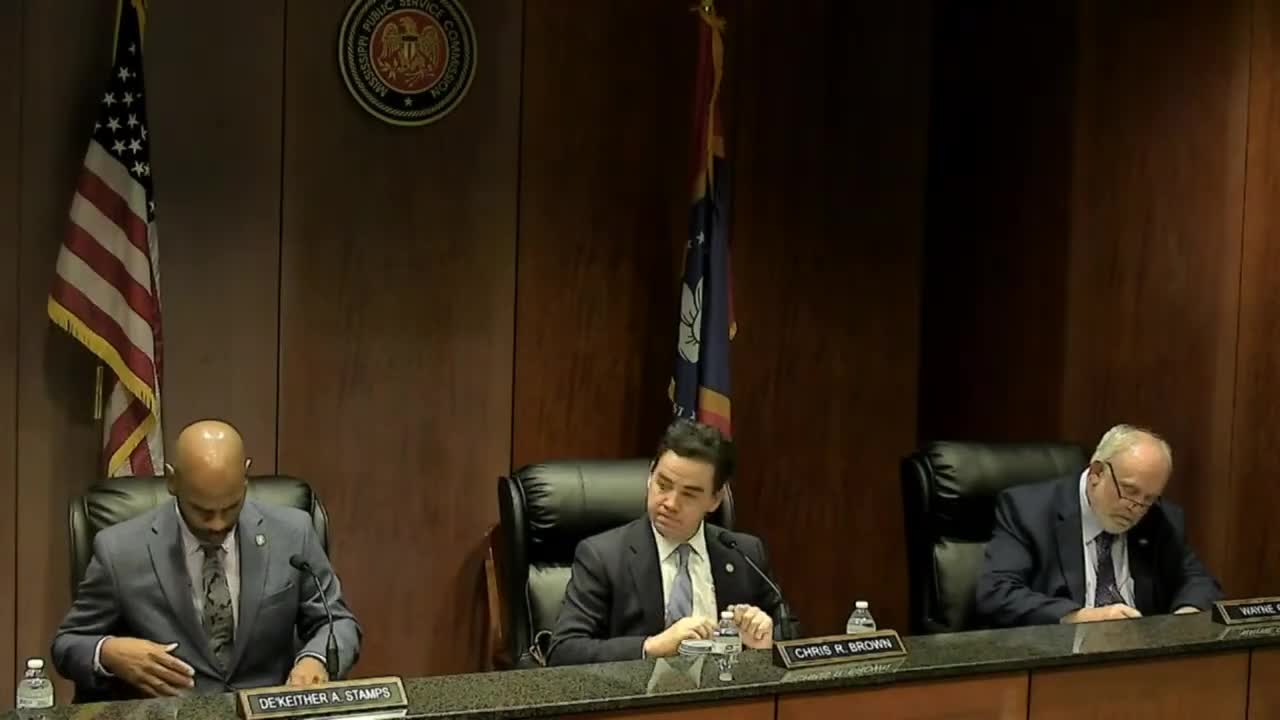Mississippi PSC approves Delta’s supplemental growth rider; staff says impact about 6 cents per residential bill
Get AI-powered insights, summaries, and transcripts
Subscribe
Summary
The Mississippi Public Service Commission approved Delta’s supplemental growth rider, allowing the utility to invest up to $5 million per year without prior commission approval; staff said the SGR added roughly $2.9 million to date and would raise the average residential bill by about 6 cents per month, with no new projects reported for the year.
The Mississippi Public Service Commission on Monday approved Delta’s supplemental growth rider (docket 2013UN214), a tariff mechanism intended to encourage industrial development by allowing Delta to contribute to gas line extensions for economic projects.
Staff presenter Miss Myrick told commissioners Delta’s filing covered the 12 months ended Dec. 31, 2024, and that the utility may invest up to $5 million annually in SGR projects without project‑specific commission approval; investments above that threshold require commission review. Staff said total net investment in the rider, including prior years, is approximately $2.9 million and that the filing produces a revenue requirement increase of roughly $80,000 — an effect the staff estimated at about a 6‑cent monthly increase for residential customers.
A Delta representative, identified in the record as Miss Elford, described the program’s history, saying the rider was designed to make otherwise marginal extensions feasible and that projects accepted into the SGR remain in the rider for 10 years before returning to standard recovery. Elford said the rider is not evaluated on a per‑customer class basis but is allocated under Delta’s formula rate plan and explained that residential customers make up the bulk of the utility’s revenue base.
Commissioners questioned whether residential ratepayers would be subsidizing industrial development. Elford responded that allocations are calculated under the company’s formula rate plan and that staff oversight is intended to prevent class subsidization. Commissioner Stamps described the rider as a tool that can spur both industrial and residential development where neither would otherwise occur.
After discussion, a commissioner moved to approve the proposed order and the commission adopted the staff‑recommended order by voice vote.
What happens next: The approved order implements the staff recommendations included in the filing. Staff noted the company reported no new SGR projects during the covered year; any future projects exceeding $5 million will require explicit commission approval.
